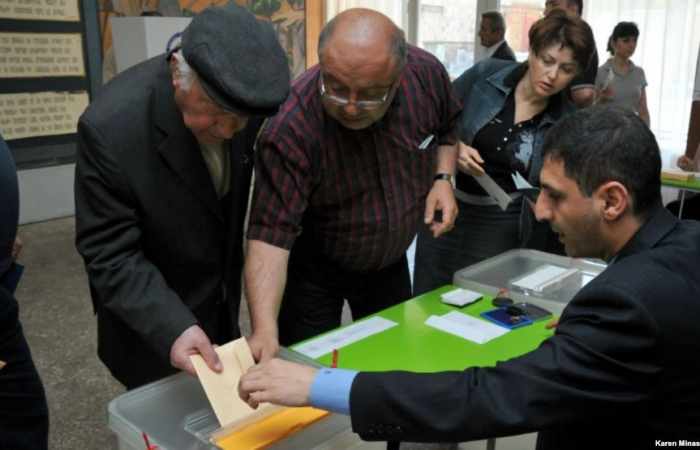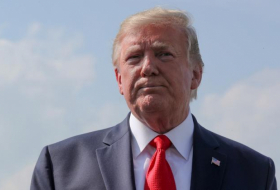But the campaign has already been marred by opposition claims that the government is preparing mass electoral fraud.
The European Union delegation to Armenia and the US embassy said in a joint statement Wednesday that they were “concerned by allegations of voter intimidation, attempts to buy votes, and the systemic use of administrative resources to aid certain competing parties.”
There are also fears of violence after 10 people were killed in 2008 clashes between police and opposition supporters following the election of pro-Moscow President Serzh Sargsyan.
This time, the country aims to hold an exemplary vote to elect “a parliament trusted by society,” the president told AFP in an interview this month.
He said his government “has made enormous efforts so that (Sunday’s) milestone vote is flawless.”
The polls come after constitutional amendments initiated by Sargsyan in 2015 that his opponents say were designed to keep the ruling Republican Party in power.
The changes were passed after a referendum, but they also prompted thousands to rally in protest.
The amendments will shift the country away from strong presidency to a parliamentary form of government after Sargsyan’s second and final term ends in 2018.
Two decades in power
The opposition alleges that the changes were made to allow Sargsyan, 62, to maintain his grip on power by remaining party leader after he steps down as president.
“The amendments will perpetuate the rule of Sargsyan and his Republican Party,” which has held onto power for two decades, said Aram Manukyan, an MP from the Armenian National Congress opposition party.
Sargsyan has denied the allegations and defended the changes as “part of Armenia’s democratisation process,” saying they would empower the opposition.
Ahead of the vote — in his first comments on his political future — Sargsyan told AFP that he would remain “active” after he left office and hinted that he would keep influencing Armenia’s politics as leader of the Republican Party.
“When one is leader of a big political party, the scope of one’s responsibility and duties increase,” he said.
“As chairman of the Republican Party, I assume responsibility for my teammates,” he said when asked about his post-2018 future.
Populist promises
Analysts say the vote Sunday will be dominated by fierce competition between the ruling party and a coalition of opposition parties led by Gagik Tsarukian, a former arm wrestler who is one of the country’s wealthiest businessmen.
“The Republican Party and Tsarukian’s coalition are likely to get the lion’s share of seats in the new parliament — more than 80 percent,” Gevorg Poghosyan, a pollster at the Armenian Sociologists’ Association, told AFP.
Both ruling and opposition parties have campaigned on populist promises such as “jobs, wages, pensions,” Poghosyan said.
“That’s what matters to the voters” in a country where about 30 percent of the population live under the official poverty line, he said.
Accusing the government of failing to address widespread poverty and endemic corruption, Tsarukian has built his campaign on lavish promises to cut tariffs on natural gas and electricity and significantly increase public-sector salaries and pensions.
A total of five parties and four electoral blocs are running in Sunday’s vote, with 101 parliamentary seats up for grabs under a proportional representation system.
A party needs to clear a five-percent threshold to be represented in parliament, while an electoral bloc made up of several parties needs to garner at least seven percent of the vote.
Voting starts at 0400 GMT and ends at 1600 GMT. The polls will be monitored by international observers from the Organisation for Security and Cooperation in Europe.
More about: #Armenia #Elections
















































